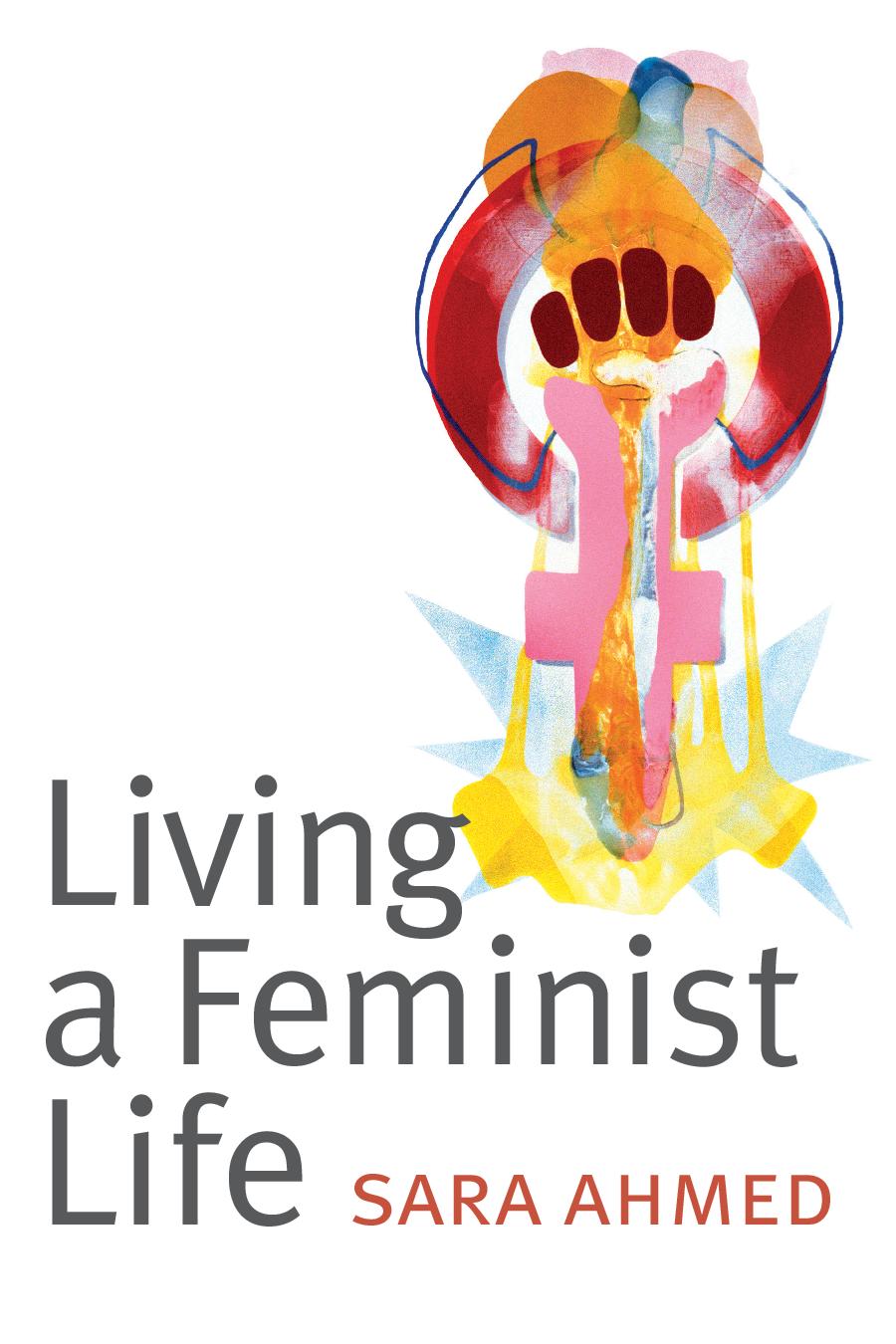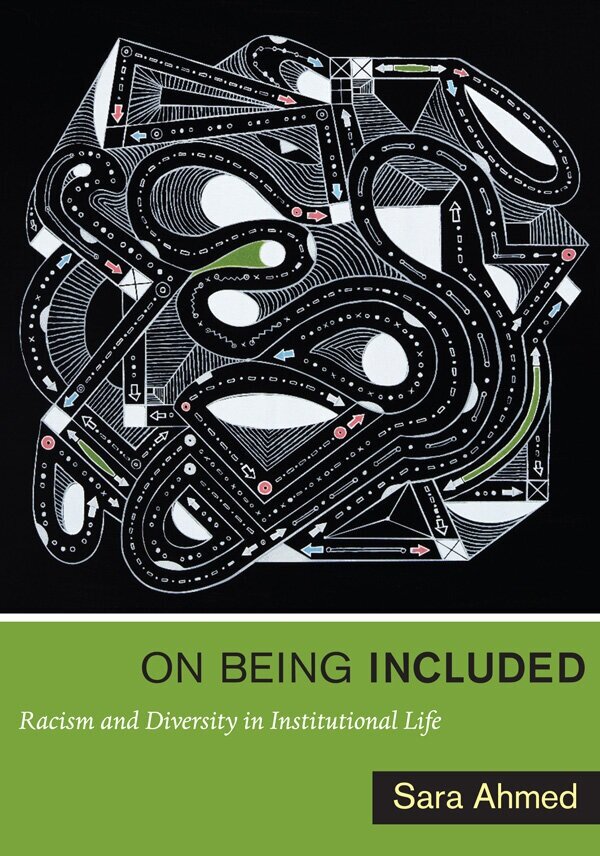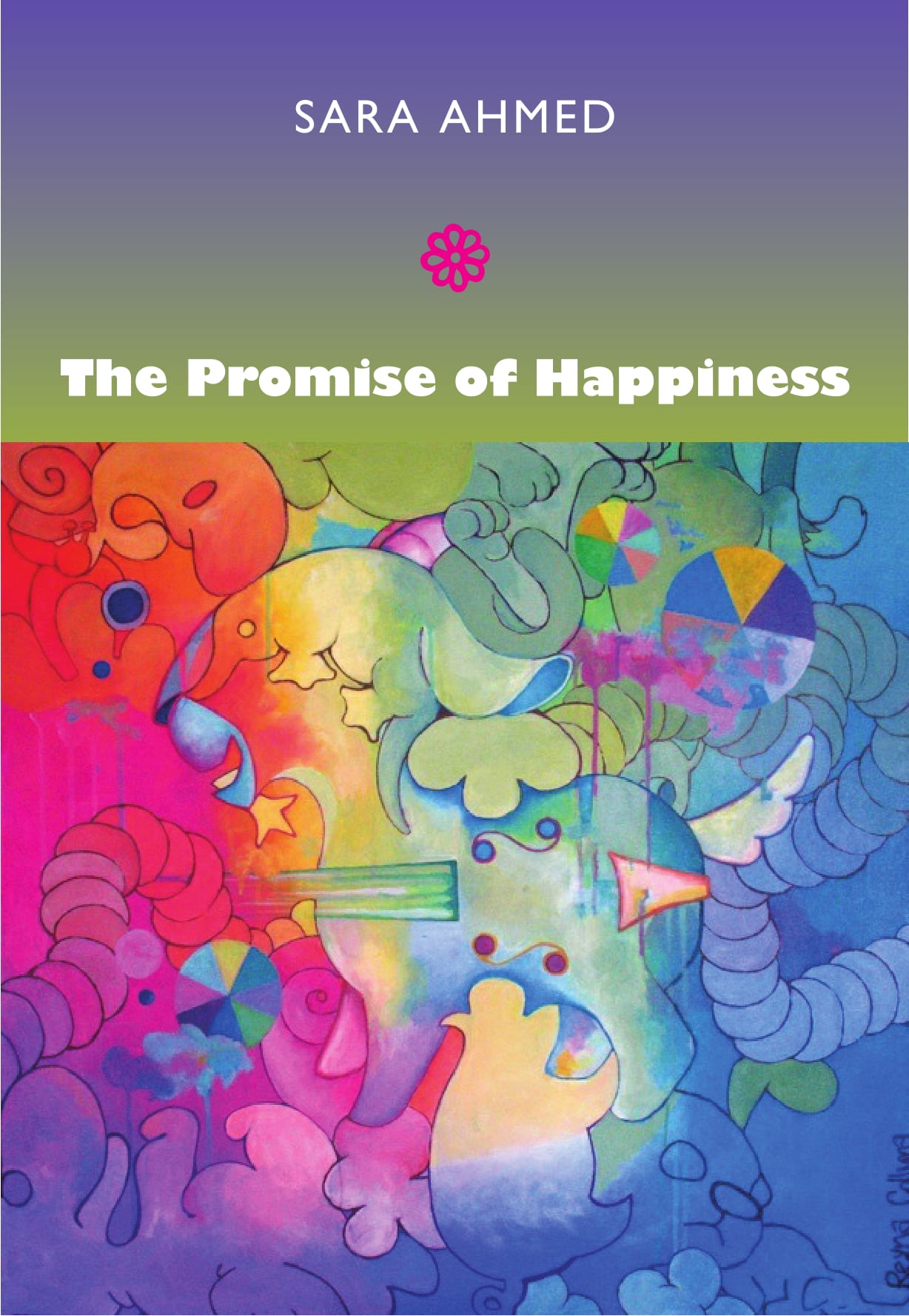COMPLAINT!
In Complaint! Sara Ahmed examines what we can learn about power from those who complain about abuses of power. Drawing on oral and written testimonies from academics and students who have made complaints about harassment, bullying, and unequal working conditions at universities, Ahmed explores the gap between what is supposed to happen when complaints are made and what actually happens. To make complaints within institutions is to learn how they work and for whom they work: complaint as feminist pedagogy. Ahmed explores how complaints are made behind closed doors and how doors are often closed on those who complain. To open these doors---to get complaints through, keep them going, or keep them alive---Ahmed emphasizes, requires forming new kinds of collectives. This book offers a systematic analysis of the methods used to stop complaints and a powerful and poetic meditation on what complaints can be used to do. Following a long lineage of Black feminist and feminist of color critiques of the university, Ahmed delivers a timely consideration of how institutional change becomes possible and why it is necessary.
WHAT’S THE USE
In What’s the Use? Sara Ahmed continues the work she began in The Promise of Happiness and Willful Subjects by taking up a single word—in this case, use—and following it around. She shows how use became associated with life and strength in nineteenth-century biological and social thought and considers how utilitarianism offered a set of educational techniques for shaping individuals by directing them toward useful ends. Ahmed also explores how spaces become restricted to some uses and users, with specific reference to universities. She notes, however, the potential for queer use: how things can be used in ways that were not intended or by those for whom they were not intended. Ahmed posits queer use as a way of reanimating the project of diversity work as the ordinary and painstaking task of opening up institutions to those who have historically been excluded.
LIVING A FEMINIST LIFE
In Living a Feminist Life Sara Ahmed shows how feminist theory is generated from everyday life and the ordinary experiences of being a feminist at home and at work. Building on legacies of feminist of color scholarship in particular, Ahmed offers a poetic and personal meditation on how feminists become estranged from worlds they critique—often by naming and calling attention to problems—and how feminists learn about worlds from their efforts to transform them. Ahmed also provides her most sustained commentary on the figure of the feminist killjoy introduced in her earlier work while showing how feminists create inventive solutions—such as forming support systems—to survive the shattering experiences of facing the walls of racism and sexism. The killjoy survival kit and killjoy manifesto, with which the book concludes, supply practical tools for how to live a feminist life, thereby strengthening the ties between the inventive creation of feminist theory and living a life that sustains it.
WILLFUL SUBJECTS
In Willful Subjects Sara Ahmed explores willfulness as a charge often made by some against others. One history of will is a history of attempts to eliminate willfulness from the will. Delving into philosophical and literary texts, Ahmed examines the relation between will and willfulness, ill will and good will, and the particular will and general will. Her reflections shed light on how will is embedded in a political and cultural landscape, how it is embodied, and how will and willfulness are socially mediated. Attentive to the wayward, the wandering, and the deviant, Ahmed considers how willfulness is taken up by those who have received its charge. Grounded in feminist, queer, and antiracist politics, her sui generis analysis of the willful subject, the figure who wills wrongly or wills too much, suggests that willfulness might be required to recover from the attempt at its elimination.
ON BEING INCLUDED: RACISM AND DIVERSITY IN INSTITUTIONAL LIFE
What does diversity do? What are we doing when we use the language of diversity? Sara Ahmed offers an account of the diversity world based on interviews with diversity practitioners in higher education, as well as her own experience of doing diversity work. Diversity is an ordinary, even unremarkable, feature of institutional life. Yet diversity practitioners often experience institutions as resistant to their work, as captured through their use of the metaphor of the "brick wall." On Being Included offers an explanation of this apparent paradox. It explores the gap between symbolic commitments to diversity and the experience of those who embody diversity. Commitments to diversity are understood as "non-performatives" that do not bring about what they name. The book provides an account of institutional whiteness and shows how racism can be obscured by the institutionalization of diversity. Diversity is used as evidence that institutions do not have a problem with racism. On Being Included offers a critique of what happens when diversity is offered as a solution. It also shows how diversity workers generate knowledge of institutions in attempting to transform them.
Vithetenus Hegemoni. (English Translation: The Hegemony of Whiteness)
Vithetens hegemoni innehåller reflektioner om vithet och rasism i vardagen och inom olika institutionskulturer. Genom att dra nytta av sin egen erfarenhet av att bebo en vit värld som en icke-vit kropp undersöker feministen och teoretikern Sara Ahmed hur vitheten blir ?världslig?, hur vithet är resultatet av en rasifiering som skapar ramarna för vad kroppar ?kan göra?.
I föreliggande antologi introduceras läsaren för en rad centrala områden i Ahmeds författarskap, såsom affektekonomier, känslopolitik, hemmets orient, mångkulturalismens lyckolöften och vithetens fenomenologi. Ett bärande tema är hennes analyser av hur vitheten lyckas upprätthålla sin hegemoni också genom antirasistiska strävanden och mångfaldsprojekt.
THE PROMISE OF HAPPINESS
The Promise of Happiness is a provocative cultural critique of the imperative to be happy. It asks what follows when we make our desires and even our own happiness conditional on the happiness of others: “I just want you to be happy”; “I’m happy if you’re happy.” Combining philosophy and feminist cultural studies, Sara Ahmed reveals the affective and moral work performed by the “happiness duty,” the expectation that we will be made happy by taking part in that which is deemed good, and that by being happy ourselves, we will make others happy. Ahmed maintains that happiness is a promise that directs us toward certain life choices and away from others. Happiness is promised to those willing to live their lives in the right way.
QUEER PHENOMENOLOGY: ORIENTATIONS, OBJECTS, OTHERS
In this groundbreaking work, Sara Ahmed demonstrates how queer studies can put phenomenology to productive use. Focusing on the “orientation” aspect of “sexual orientation” and the “orient” in “orientalism,” Ahmed examines what it means for bodies to be situated in space and time. Bodies take shape as they move through the world directing themselves toward or away from objects and others. Being “orientated” means feeling at home, knowing where one stands, or having certain objects within reach. Orientations affect what is proximate to the body or what can be reached. A queer phenomenology, Ahmed contends, reveals how social relations are arranged spatially, how queerness disrupts and reorders these relations by not following the accepted paths, and how a politics of disorientation puts other objects within reach, those that might, at first glance, seem awry.
THE CULTURAL POLITICS OF EMOTION
What do emotions do? How do emotions move us or get us stuck? In developing a theory of the cultural politics of emotion, Sara Ahmed focuses on the relationship between emotions, language and bodies. She shows how emotions are named in speech acts, as well as how they involve sensations that are felt by the skin. The Cultural Politics of Emotion develops a new methodology for reading ‘the emotionality of texts’ and offers analyses of the role of emotions in debates on international terrorism, asylum and migration, and reconciliation and reparation.
STRANGE ENCOUNTERS: EMBODIED OTHERS IN POST-COLONIALITY
Examining the relationship between strangers, embodiment and community, Strange Encounters challenges the assumptions that the stranger is simply anybody we do not recognize and instead proposes that he or she is socially constructued as somebody we already know. Using feminist and postcolonial theory this book examines the impact of multiculturalism and globalization on embodiment and community whilst considering the ethical and political implication of its critique for post-colonial feminism.
DIFFERENCES THAT MATTER: FEMINIST THEORY AND POSTMODERNISM
Differences That Matter challenges existing ways of theorising the relationship between feminism and postmodernism which ask 'is or should feminism be modern or postmodern?' Sara Ahmed suggests that postmodernism has been allowed to dictate feminist debates and calls instead for feminist theorists to speak (back) to postmodernism, rather than simply speak on (their relationship to) it. Such a 'speaking back' involves a refusal to position postmodernism as a generalisable condition of the world and requires closer readings of what postmodernism is actually 'doing' in a variety of disciplinary contexts. Sara Ahmed hence examines constructions of postmodernism in relation to rights, ethics, subjectivity, authorship, meta-fiction and film.










